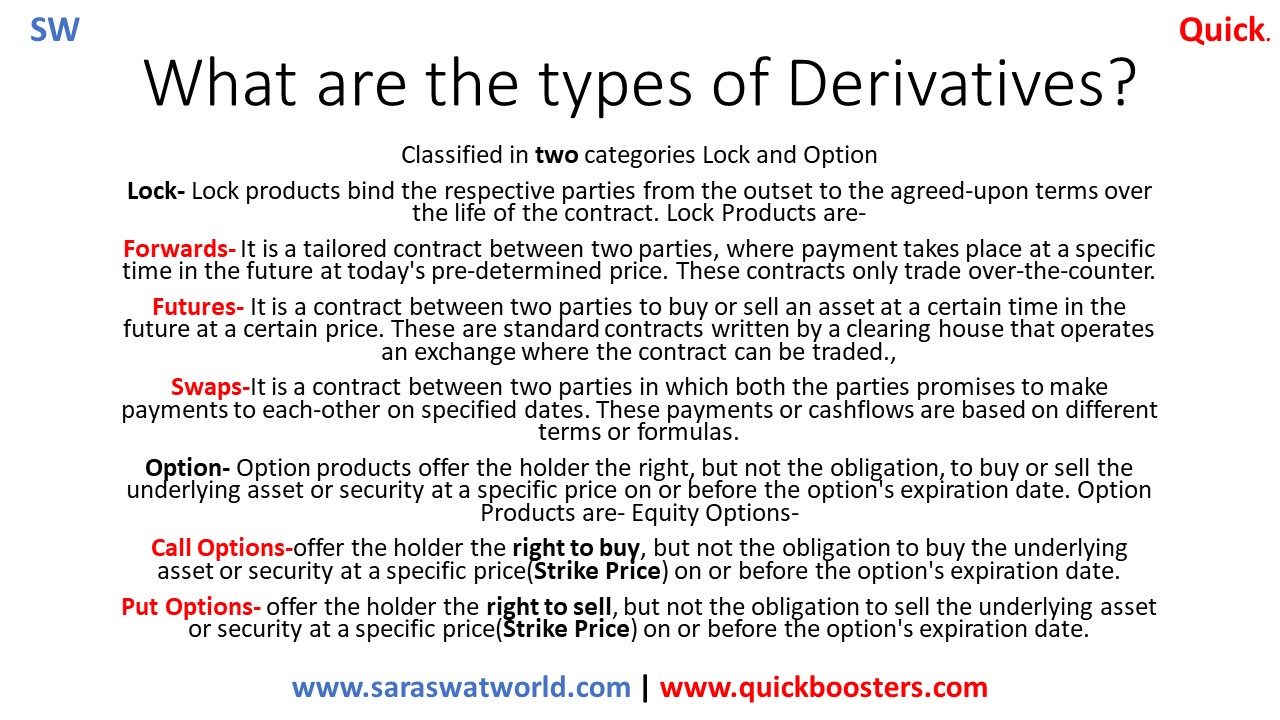Types of Derivatives
Derivatives are classified in two categories Lock and Option.
Lock
Lock products bind the respective parties from the outset to the agreed-upon terms over the life of the contract. Lock Products are-
Forwards
It is a tailored contract between two parties, where payment takes place at a specific time in the future at today’s pre-determined price. These contracts only trade over-the-counter. These contracts involve high degree of credit or counterparty risk.
Futures
It is a contract between two parties to buy or sell an asset at a certain time in the future at a certain price. These are standard contracts written by a clearing house that operates an exchange where the contract can be traded.
Swaps
It is a contract between two parties in which both the parties promises to make payments to each-other on specified dates. These payments or cashflows are based on different terms or formulas.
Option
Option products offer the holder the right, but not the obligation, to buy or sell the underlying asset or security at a specific price on or before the option’s expiration date.
Option Products are- Equity Options-
Call Option
offer the holder the right to buy, but not the obligation to buy the underlying asset or security at a specific price(Strike Price) on or before the option’s expiration date.
Put Option
offer the holder the right to sell, but not the obligation to sell the underlying asset or security at a specific price(Strike Price) on or before the option’s expiration date.
